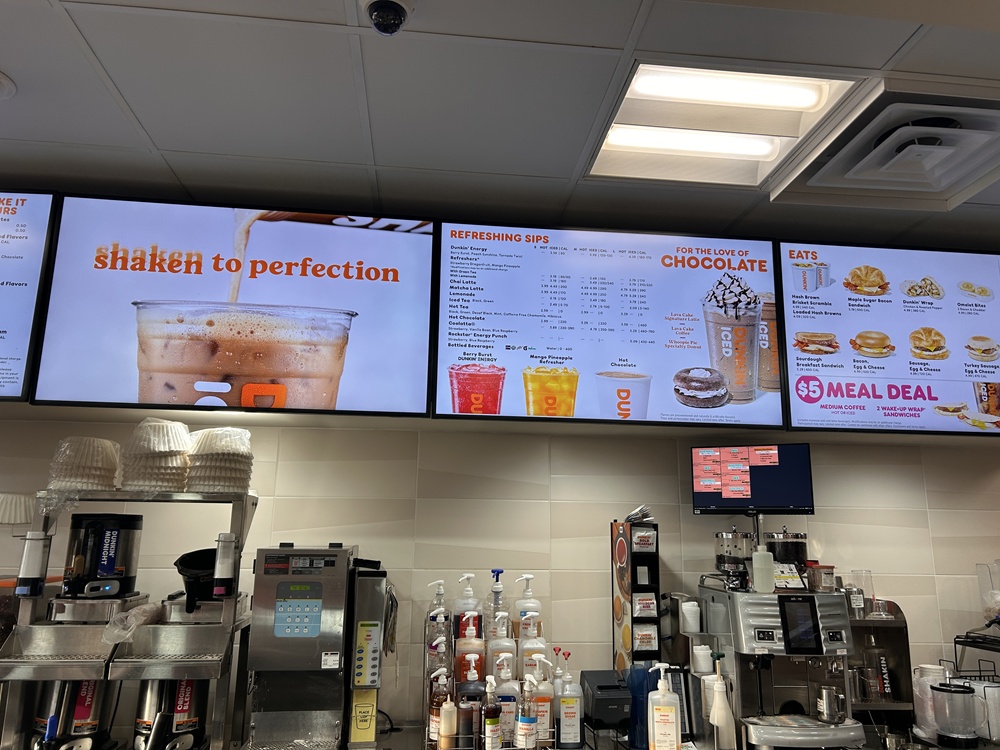We Exclusively represent buyers
Triple Net Advisor - Find The Best Triple Net Properties for Sale First
Triple Net Companies is proudly led by Kenneth Brown, CCIM, a recognized expert in commercial real estate with over 40 years of experience exclusively representing buyers. Let Kenneth work with you to find the perfect NNN property investment!
The best properties sell fast. Get notified within 1 hour when a property that meets your requirements becomes available
"*" indicates required fields
Triple Net Buyer's Broker
Why Work with Ken?

Kenneth Brown, CCIM
At Triple Net Companies, LLC, Ken works for you—never the seller.
As exclusive buyer’s brokers, Kenneth Brown’s duty is to protect you. Unlike listing agents who represent sellers, we’re on your side to help you find, evaluate, and close on the best NNN investment.
Our services are 100% free to you.
We’re paid by the seller, regardless of which property you choose. That means we’re focused only on what’s best for you.
Why it matters:
When you deal with a listing broker, you’re on your own for due diligence. Most offering memorandums state due diligence is the buyer’s responsibility. That’s a risky position.
Finding a NNN property is easy. Making the best investment isn’t.
With over $2 billion in analyzed deals, our experienced team uncovers what others miss—ensuring your investment is sound and fully protected.
kudos
What clients are saying...
Greg Moore
Karen Livreri
Reza Hamzaee
With over 20,000 NNN Properties for sale, it is important to know how to identify the best NNN Properties for Sale.
The Best Triple Net Properties for Sale Should:
- Not compete with Amazon
- Peform Well in a recession
- Have an investment-grade credit rating
- Have a population of 10,000+ people within a 5-mile radius
- Offer a superior return compared to other triple net tenants
- Have guaranteed lease payments
- No rent holidays
- Longest possible Lease
- Have a good number and diversity of employers in the area
- Multiple renewal options
- Have rent increases at each option period
- Have a population of 10,000+ people within a 5-mile radius
- Have a stable or expanding population
- Have a minimum of 3,000 cars per day passing the property
- Be a public corporation
- Peform well during a pandemic
- Offer a superior return compared to other asset classes
- Have a size and layout that will make it easy to re-tenant the property if necessary










NNN Financing
1031 Exchanges
1031 exchanges allow investors to defer capital gains taxes by reinvesting the proceeds from the sale of one investment property into another like-kind property.


Over $2 billion in transactions closed
Experienced Buyer's Broker
We specialize exclusively in representing buyers. With over 20 years of experience and more than $2 billion in transactions closed, our expertise in effective due diligence is unparalleled. Our relationship with developers gives you access to the best properties before they hit the market. Plus, our services come at no cost to you, as we are compensated by the seller. Choose Triple Net Companies for expert guidance and exclusive opportunities in the triple net property market.
- Exclusive Representation for Buyers since 1981
- Proven Track Record
- Access to Exclusive Properties
- Comprehensive Due Diligence
How We Can Help You Find the Best NNN Property
There is only one way to find the best triple net property:
- Deal with a broker that represents buyer’s exclusively to avoid any potential conflict of interest of listing brokers pushing their own listing over your best interests.
- Shop the entire market. There are multiple triple net listing sites. Triple Net Companies accesses these sites when searching for the ideal property for you.
- Use Independent Due Diligence: Having the company that will earn a commission based on their recommendation of a property can be a conflict of interest.
- Be set up to receive automated searches so that you are notified the moment a property that meets your requirements becomes available. Triple Net Companies’ automated search engine will notify you within one hour once a property that meets your requirements becomes available.

FAQ
Why Net Lease?
With the wild fluctuations in the financial markets, many investors are looking for a safe place to put their money. Triple net leases offer that stable, predictable return.
A triple net lease requires the tenant to pay, in addition to rent, all of the property expenses that normally would be paid by the property owner, including real estate taxes, insurance, maintenance costs and utilities. Typically, net lease assets tend to be single tenant, free standing buildings such as banks and fast food restaurants that can come with a corporate guarantee which makes the corporation, not the property, responsible for making your monthly payments.
Why Net Lease?
With the wild fluctuations in the financial markets, many investors are looking for a safe place to put their money. Triple net leases offer that stable, predictable return.
A triple net lease requires the tenant to pay, in addition to rent, all of the property expenses that normally would be paid by the property owner, including real estate taxes, insurance, maintenance costs and utilities.
Typically, net lease assets tend to be single tenant, free standing buildings such as banks and fast food restaurants that can come with a corporate guarantee which makes the corporation, not the property, responsible for making your monthly payments.
What is a net-lease?
A Net Lease is an agreement between a tenant and a landlord where THE TENANT, not the Landlord, is responsible for paying rent plus some or all of the operating expenses of the building such as taxes, insurance premiums, repairs, and utilities. Specifically, in the case of a triple net lease, also known as NNN leases, the tenant agrees to pay all of the building’s operating expenses, real estate taxes and insurance.
What is a single-tenant, net-leased investment?
A single-tenant, net-leased investment is typically a freestanding office, retail, or industrial building that is leased and occupied by one user or one company. Typically the tenant has committed to a long-term lease – usually longer than 10 years, and as long as 25 years with increasing rent over the lease term.
How are single-tenant, net-leased investments different from multi-tenant buildings?
Multi-tenant buildings have more than one tenant, and as a result, owners and landlords must juggle multiple leases that begin and end at different times. These leases are rarely longer than ten years. That means that the building’s financial performance is vulnerable to the ups and downs of the market.
Many net-lease investors have previously owned other types of real estate but are looking for an investment that requires less maintenance and supervision. For example, many apartment investors end up selling their high-maintenance properties and then reinvesting the sale proceeds in single-tenant, net-leased retail properties, as do many landowners who have previously never received any income or tax benefits from their property.
Who can invest in single-tenant, net-leased properties?
Anyone can invest in single-tenant leased properties. Other than large institutional investors and life insurance companies who invest in triple net leases because of the security they offer, individual investors who own single-family rentals who are just tired of having to deal with tenants or are afraid their equity will be wiped out in another market shift, are ideal candidates, especially since they can sell their rental and exchange that equity, tax free, into a net-leased property.
What are the risks related to investing in single-tenant, net-leased properties?
While there are fewer risks related to investing in single-tenant, net-leased properties, as compared to more speculative real estate investments, tenants with non-investment grade credit profiles offer higher levels of risk. But that risk typically provides higher returns as well. And investors always need to think about the “re-leaseability” of a property if the tenant were to vacate the space.
How are single-tenant, net-leased assets valued?
Unlike traditional real estate investments whose valued is determined exclusively by the real estate itself, a single-tenant, net-leased property’s value is determined by a combination of factors including the tenant’s credit, the length of the lease and rental escalations over the term, and, last but not least, the real estate. In markets where the real estate experiences wide valuation swings, a single-tenant, net-leased property will maintain its value because of its bond-like, long-term lease and the credit tenant guaranty for the lease.
When is the best time to invest in a single-tenant, net-lease property?
Net-leased properties are like all-weather tires. They are good investments in both good and bad economic times and in hot and cold real estate markets. Here’s why: a single-tenant net lease investment is guaranteed by the lease at pre-set rental rates. As an owner, you know exactly who will be a tenant in your building, how long that tenant will be there and exactly how much rent they will pay. That means you will derive a predetermined income from your investment, as long as the tenant is occupying the asset and current with the terms of their lease.
Triple Net Broker - Work with Kenneth
Choosing Triple Net Companies, Inc. means choosing a partner with decades of exclusive buyer representation, a proven track record, and access to the best properties and financing options.
Contact us today to learn more about how we can help you achieve your investment goals.
